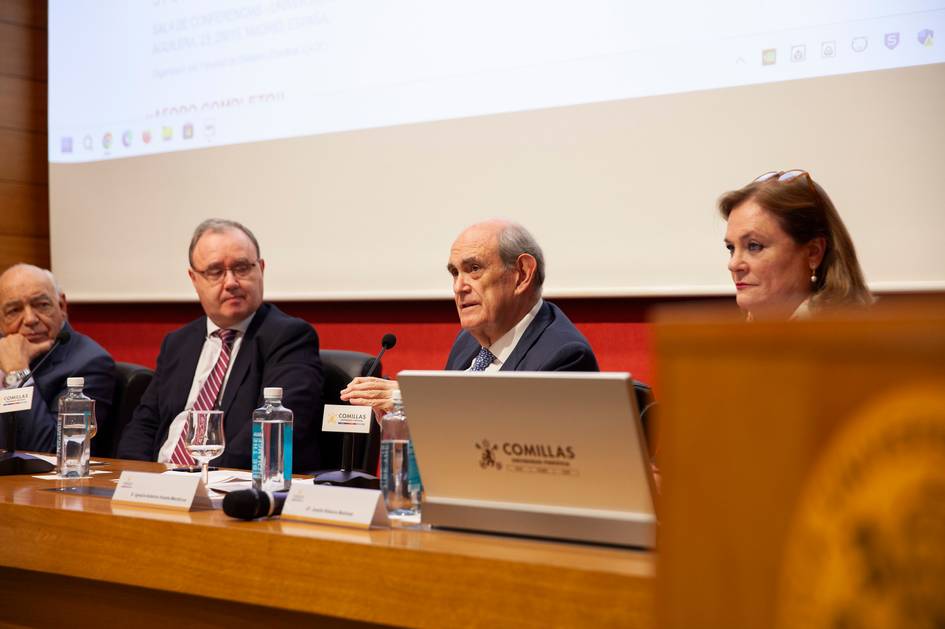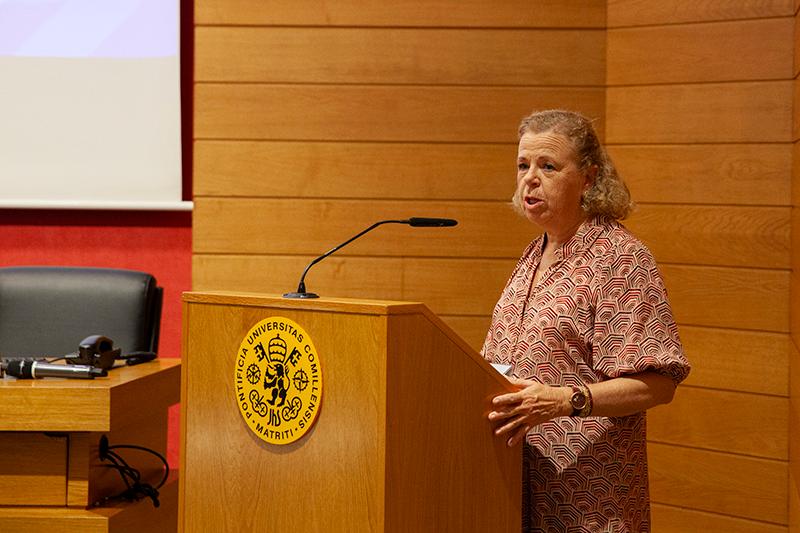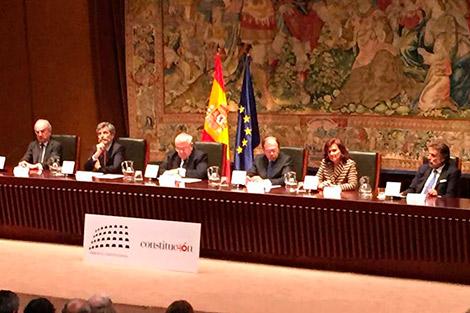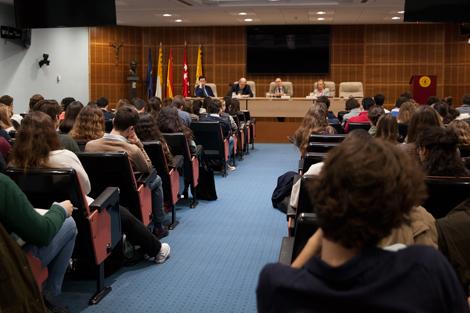State of autonomies: "Spain had to go down this road".
Comillas brings together experts to analyse the challenges of territorial organisation in Spain

5 February 2024
In 1979, the conditions for the creation of the autonomous communities in Spain began to be established and, from that year until 1984, all of them were formed. Five decades later, different experts have analysed at Comillas the state of territorial organisation in Spain and the challenges that lie ahead.
The conference, organised by the Royal Academy of Jurisprudence and Spanish Legislation, the Comillas-ICAI University Foundation, the Centre for Innovation in Law (CID-ICADE) and the Constitutional Law Department of the Faculty of Law (Comillas ICADE), brought together Josefa Ridaura, President of the Association of Constitutionalists of Spain and Lecturer in Constitutional Law at the University of Valencia, and Tomás Ramón Fernández, Full Member of the Royal Academy of Jurisprudence and Legislation, Lecturer in Administrative Law at the Universidad Complutense, and former Rector of the UNED.
One of the ideas on which both speakers agreed was that the re-establishment of democracy had to go hand in hand with the decentralisation of the State. Ridaura affirmed that "autonomy was linked to democracy as opposed to Franco's centralism because decentralisation was equivalent to democracy, because centralism distanced the people from the authorities and their participation". For his part, Fernández said that "Spain had to go down this path, and our previous history pushed us to do so".
For the lecturer, the problem was that "the Constitution refrained from establishing a model of state, and this is very serious; there were no previous plans or models, and there was no response to what might emerge". In spite of this, "after 50 years, Spain has achieved a degree of decentralisation that has given it a valuable level of self-government and institutional stability that is difficult to dismantle", said Ridaura, who clarified that it has not been a disaster, although there have been shadows in the process, which is irreversible.
Both academics agreed that our territorial model requires pacts, and that exclusions are out of the question, and even less so for the majority political forces. The independence challenge was also one of the issues that came up, and serious inequalities were noted between communities and different financing regimes that favour some over others.
During the opening of the conference, Enrique Sanz, Rector of Comillas, underlined the importance of this first conference on territorial organisation and assured that "the lack of political cession sometimes discourages and angers citizens". For his part, Ignacio Astarloa, Lecturer at Comillas ICADE, who moderated the round table, said that future conferences will deal with issues such as the distribution of powers, the past, present and future of the statutes of autonomy and the situation in Europe.
You may also be interested in

La Asociación de Constitucionalistas de España se reunió en Comillas ICADE para abordar los grandes retos a los que se enfrenta el constitucionalismo en España

Profesores de la universidad participan en un libro editado por Planeta en el que se comentan los artículos de la Constitución

El experto, Josep María Castellà, dio una conferencia sobre la crisis secesionista en Cataluña y sus salidas constitucionales
